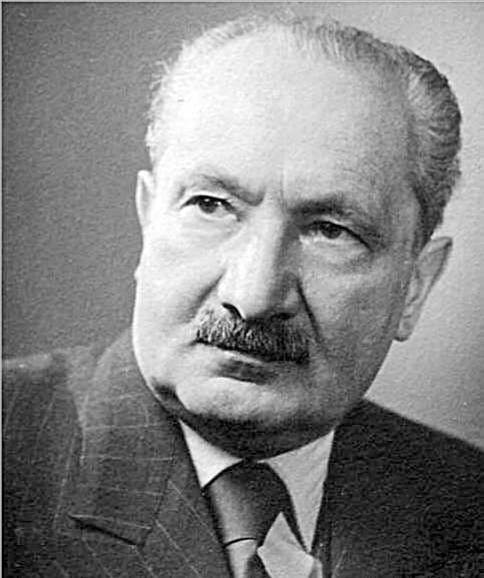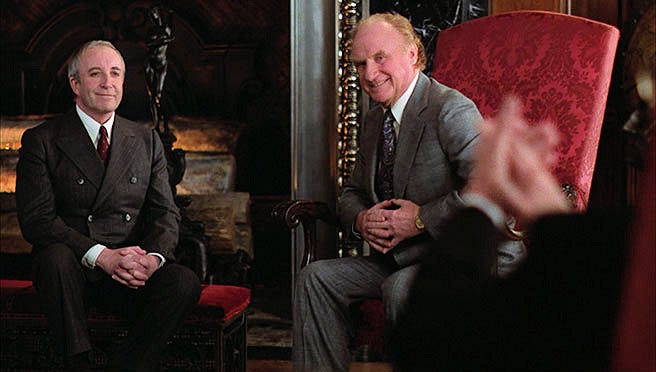God is in the Dice II
Emotional availability — that mysterious opening on the game board of life — loomed as the key.
Karen had gone over a waterfall and into my heart.
The romantic perfection of our origin story assured me that God was guiding life’s traffic. It created an expectation that if I raised my vibration, my life would flow seamlessly into Bruce 2.0 forty years later.
As proof of concept, a beautiful, spiritually awakened Jewish woman appeared at my door with a blueberry pie on the seventh month to the day and minute of Karen's passing. The pie recipe had popped out of a Little Free Library. The serendipity did not go unnoticed by Mr. Law of Seven.
So now, I was in a predicament. Either:
I was being punk’d by the Almighty,
Life was meaningless and random, or
God was visualizing six-dimensional chess while I played checkers.
Somewhere in the back of my mind, the ancient words emerged: Expectation is the Red Death. It was from Rumi’s Mathnawi:
…for expectation is the red death…”
Rumi offers no further mention or explanation, but it became one of our Sufi memes. My Sufi teacher, Reshad Feild spoke of expectation often, once explaining:
“Expectation is the red death. Most of us were raised in the expectation that we’re meant to be doing something. That expectation sets a pattern for our lives. The red death of expectation is what stifles a human being.”
The implication: Every picture of the future is imaginary. It blocks the flow of life from unfolding to its full potential.
Further down in the Rumi passage, the King tells Ayaz:
“How long have you been uttering poetry and prose and (proclaiming) mysteries! O master, try the experiment and, for one day, be dumb.”
I didn’t realize “dumb” was an option — that I could live my life, brain disengaged and without expectation.
All my great truths come from the movies.
I considered the “dumb” character Chance, played by Peter Sellers in Being There (1979). Chance, a simple gardener, rises to political prominence through a series of misunderstandings and from being in the right place at the right time.
In this scene, the President and his adviser Benjamin Rand discuss economic policy with Chance, who assumes they are discussing gardening:
The President: Mr. Gardner, do you agree with Ben, or do you think that we can stimulate growth through temporary incentives?
[Long pause]
Chance the Gardener: As long as the roots are not severed, all is well. And all will be well in the garden.
The President: In the garden.
Chance the Gardener: Yes. In the garden, growth has its seasons. First comes spring and summer, but then we have fall and winter. And then we get spring and summer again.
The President: Spring and summer?
Chance the Gardener: Yes.
The President: Then fall and winter?
Chance the Gardener: Yes.
Benjamin Rand: I think what our insightful young friend is saying is that we welcome the inevitable seasons of nature, but we're upset by the seasons of our economy.
Chance the Gardener: Yes! There will be growth in the spring!
Benjamin Rand: Hmm!
Chance the Gardener: Hmm!
The President: Hmm. Well, Mr. Gardner, I must admit that is one of the most refreshing and optimistic statements I've heard in a very, very long time.
[Benjamin Rand applauds]
The President: I admire your good, solid sense. That's precisely what we lack on Capitol Hill.
The movie’s title comes from the German word Dasein, which literally means "being there" — the fact of our existence. The German philosopher Martin Heidegger used Dasein to address the human paradox of being ultimately alone with oneself (remember Brujo?) while also relating to others (Bondo).
According to Heidegger, Being is not separate from its encounters with others in the world. That is how Being knows itself:
Dasein itself — and this also means its Being in the world — gets its ontological understanding of itself from those entities it encounters within its world and from the Being they possess.”
Heidegger goes further, saying that expectation is not the red death. The world of possibilities is pulled into Reality through expectation:
“Even in expecting, one leaps away from the possible and gets a footing in the real… By the very nature of expecting, the possible is drawn into the real, arising from it and returning to it.” ~ Martin Heidegger, Being and Time
I hadn’t planned on this conundrum; I wanted to understand the lady with the pie.
I considered several other old films and chose The Lady in Red (also 1979):
Summary: A sweet, naive 1930’s farm girl witnesses a bank robbery, is taken hostage, conned into sleeping with a sleazebag journalist, runs away, works in a sweatshop, befriends a Jewish communist, works as a taxi dancer, is arrested for prostitution, becomes a prostitute, (and a bunch more plot points) until she befriends the famous bank robber John Dillinger, robs a bank herself, and escapes into the sunset.
In short:
Being There — a simple gardener becomes a prominent political figure — from being in the right place at the right time.
Lady in Red — a simple farm girl becomes a bank robber with the notorious John Dillinger — from being in the wrong place at the wrong time.
The Rebirth of Bruce — A grieving widower is awakened by his dog in a lightning storm and stumbles down the Rabbit Hole of Relationship.
In each, the world of chance awakens being and grows substance.
Heidegger’s Dasein emphasizes that human beings do not exist in isolation. We exist in a dynamic relationship with the world — a give-and-take that grows being. The plots of these stories show how chance and risk drive being and substance. The main character’s name is even Chance.
It was time to pull out the book that changed my life forty years ago.
J.G. Bennett’s Hazard, The Risk of Realization, describes the dance between chance and the Divine. It explores whether God is the prime mover — or, as suggested in the lyrics of Joan Osborne:
What if God was one of us?
Just a slob like one of us
Just a stranger on the bus
Tryin' to make his way home?
My question then: Does life follow a Grand Plan, or is it frighteningly random, an expression of what Bennett calls Hazard? If the latter, how do we reconcile the chance nature of Creation with its symmetry, order, and beauty?
According to Bennett, Hazard is the chaos generator that produces beauty, wisdom, transformation, and love. When we make peace with the Unknown and become attuned to the present, Hazard can become our friend.
When I read Hazard years ago, I was a devoted Sufi.
I prayed to an Absolute with Ninety-Nine Names — Names for an all-powerful that included:
Al-Malik — The One with the complete Dominion
Al-Jabbar — The One that nothing happens in His Dominion except that He wills
Al-Khaliq — The One who brings everything from non-existence to existence
Al-Wahid — The Unique, The One, The One without a partner.
None of those Ninety-Nine evoked the “slob on the bus.” So, you can imagine my shock when Bennett declared:
“God Himself must be subject to hazard.”
Suddenly, God was struggling to find a parking space like the rest of us. In other words, the Universe was making it up as it went along.
The Universe is making it up as it goes along.
Hazard, with all its messiness, is the creative impulse.
It bumbles and stumbles to create a meaningful world. Hazard lives at the core of everything we value: love, tenderness, creativity, healing, and breakthroughs of all kinds.
Carl Jung put the Law of Hazard into our hands when he said:
“If you destroy the creative impulse, you destroy the intrinsic value of the individual.”
The stakes cannot be higher right now as pundits and pollsters predict that democracy is over and that the United States is at a crossroads. Bennett describes the opportunity of this moment:
All opening is a hazard.
You arrive at a crossroads. If you can see which way, if it is clearly labeled, that the road on the left is the one that leads to your destination, then choosing that way is not an opportunity.
If the way is not labeled at this crossroads — and in life, our ways are not labeled — then when we come to the crossroads, there is uncertainty and suspense and, with that, an opportunity.
How to recognize it? This is really the art of living.
The word “hazard” comes from the word for dice in the old Akkadian language.
Zar became azar in Spanish and hazard in English.
Opportunities open and close in life, similar to the scheme of backgammon, where the player moves pieces from one available hole to the next under the control of the dice.
Bennett uses the analogy of molten glass to explain this phenomenon in life:
There are holes in the glass, and we know that these holes make it possible for one element of the material to enter into a hole and release a place for another one to enter… The melting of a piece of glass is really the same kind of process, governed by the same sort of rules as the game of backgammon. Someone, or something, is throwing the dice, and when the turn comes for the particular little aggregate of silicate to fall into a hole that is available, it will do so, and so the glass flows.
Bennett takes molten fluid state further as the key to understanding the whole of life:
If you really could penetrate this question to the limit— if you could really feel yourself part of the process and understand what it is like for a piece of glass to melt, if you could go to the end, you would find that you would understand everything that there is in the world.
Can you understand my excitement about Hazard?
I had been thrust into a new chapter of life called “dating.” Suddenly, I was a backgammon piece looking to fall into an opening. Both Janey and I were pieces on the board of life falling in and out of the openings (in backgammon, called points).
The game helped me understand how the universe manifested a perfectly timed pie: A point opens, the dice roll, the pieces move, and the player chooses an opening. If the player doesn’t move into that opening, the play moves on. Like a Mission Impossible tape, that particular configuration self-destructs. It vanishes into the past while we second-guess our decisions.
My yoga teacher nailed it when he explained that action and meaning unfold in the present:
“The moment of attraction is a mystery. And, in the force of being together, you understand why things are.” ~Mitchel Bleier
This sounds romantic, but it’s terrifying. It means burning the roadmap, unplugging the GPS, and following the stars. To reclaim your life, you must reclaim your core energy.
At my age, the backgammon points seem closed. Like un-molten glass, people are done flowing, and they seek to eliminate Hazard from every sphere of life.
If Hazard is the creative engine, how do we let it in?
Like shaking an Etch-a-Sketch, no one wants to live on an ever-erasing slate. It’s human nature to create pictures — of one’s progress, the hope for a relationship, or the feeling that God is on your side. It’s easy to intellectualize that all experience is in the present moment, but how do you reconcile the constant of the present moment with the flux of Hazard. The mind can’t grasp two worlds in one.
Joseph Campbell explained to Bill Moyers how the present moment exposes the edge of Eternity:
Eternity isn’t some later time; eternity isn’t a long time; eternity has nothing to do with time. Eternity is that dimension of the here and now in which thinking in time cuts out.
If you don’t get it here, you won’t get it anywhere. The experience of eternity — here and now — is the function of life.
For Bennett, facing the crossroads of here and now is the art of living. Like in Backgammon, we face an interplay of two forces — 1) Hazard from the random throw of the dice and 2) Decision-making based on the positions on the board.
Decision is an act of will.
Bennett explains how we access the present moment — outside space and time — through will. The game unfolds through will, and the whole of our life works the same way.
Will isn’t willfulness — forcing your way on people. Will is the cosmic force that propels an inchworm, moves the universe, chooses an opening on the board, and compels me to finish this article before breakfast.
Joseph Campbell discusses another German philosopher, Arthur Schopenhauer, who describes will as the writer of our life:
[The whole of our life] seems to have been composed by someone. Those events that, when they occur, seem merely accidental and occasional and just something that happened, turn out to be the main elements in a consistent plot.
So Schopenhauer asks, who composed this plot? And he said, “Just as your dreams are composed by an aspect of yourself of which your consciousness is unaware, so your whole life has been composed by the will within you.”
Then he says, “Just as those people you met by chance became effective agents in structuring your life, so you have been an agent.”
Watch: Joseph Campbell and Bill Moyers
Sounds like Dasein. Those German philosophers were on to something.


Opportunity and decision play together to make growth and change possible.
Hazard, like the throw of the dice, opens these holes so that the “molten” nature of life can flow. Bennett warns that we can’t bank on Hazard to deliver a payoff:
If we are going to think seriously about the law of Hazard, we must remember… that it is by no means certain that when one takes a risk, it will pay off. If one takes a risk, there must be a possibility of failure, even a probability. Nature seems to deal with this contingency by lavishness.
Bennett describes how thousands of acorns fall to the ground for one oak to grow or how a mother codfish lays millions of eggs to produce her offspring.
Throughout the history of the world, innumerable forms have arisen, and the great majority of these have failed to survive and have disappeared. Many lines that appeared promising have been snuffed out.
I can’t cajole a potential girlfriend to take steps toward a relationship, yet I can take a risk when my heart feels promise. An open heart describes a point on the board that is open and available.
The term "emotional availability" describes this opening. The term was first used in 1975 to describe a mother's emotional responsiveness during her child's development.1 Today, it broadly describes our capacity to connect emotionally with another person and be attuned to their needs.
When I asked Mitchel Bleier, “I understand the force of attraction. But sometimes it happens and sometimes not,” he paused and replied, “Why something comes into being in a particular moment? That’s the mystery.”
It’s the mystery I wanted to solve. Emotional availability — that mysterious opening on the board — loomed as the key.
This time, I didn’t need a lightning storm to kickstart my inquiry. I searched “emotional availability” among the reader comments on Threads:
"Emotional availability isn't a static character trait we either have or don't. Emotional availability is comfort with, embrace of, and curiosity towards feelings — all of them."
"Strange. I met someone with more emotional availability when I started healing my emotions."
"Emotional availability is the hallmark that a boy has left his head and ego and connected to his heart... a ‘right of passage' that signifies a boy has transitioned to a masculine man.”
"The need for romance is a direct indication of your own emotional UNAVAILABILITY with yourself."
"Just because you’re open and available for a relationship doesn’t automatically mean you’re emotionally available.”
"People can only feel us to the degree we let them. If we’re scared of our pain or our joy and deny it as a result, no one outside of us will be able to meet us in it. And we will feel unseen and alone in it."
Suddenly, I felt insufficiently cooked by my grieving process. Bennett drove in one more screw; he put the kibosh on my mystical thinking:
There is the gambler's hope, which is expecting the law of Hazard to do for you what is not its function at all, that is, to give you something for nothing.
One of the great misinterpretations is to see the law of Hazard like this. We are very prone to it. We go in for this sort of hope on a very huge scale, of expecting an unearned profit from the law of Hazard. This is not how the world is actually put together.
Yes, I was guilty of new-age expectations from the law of Hazard — expecting synchronicity and beneficence to flow into my life because I was on “Team God.”
Maybe this was the red death, and I still had work to do.
In 1975, Margaret Mahler, Fred Pine, and Anni Bergman first used the term "emotional availability" (EA) in their book The Psychological Birth of the Human Infant: Symbiosis and Individuation.












